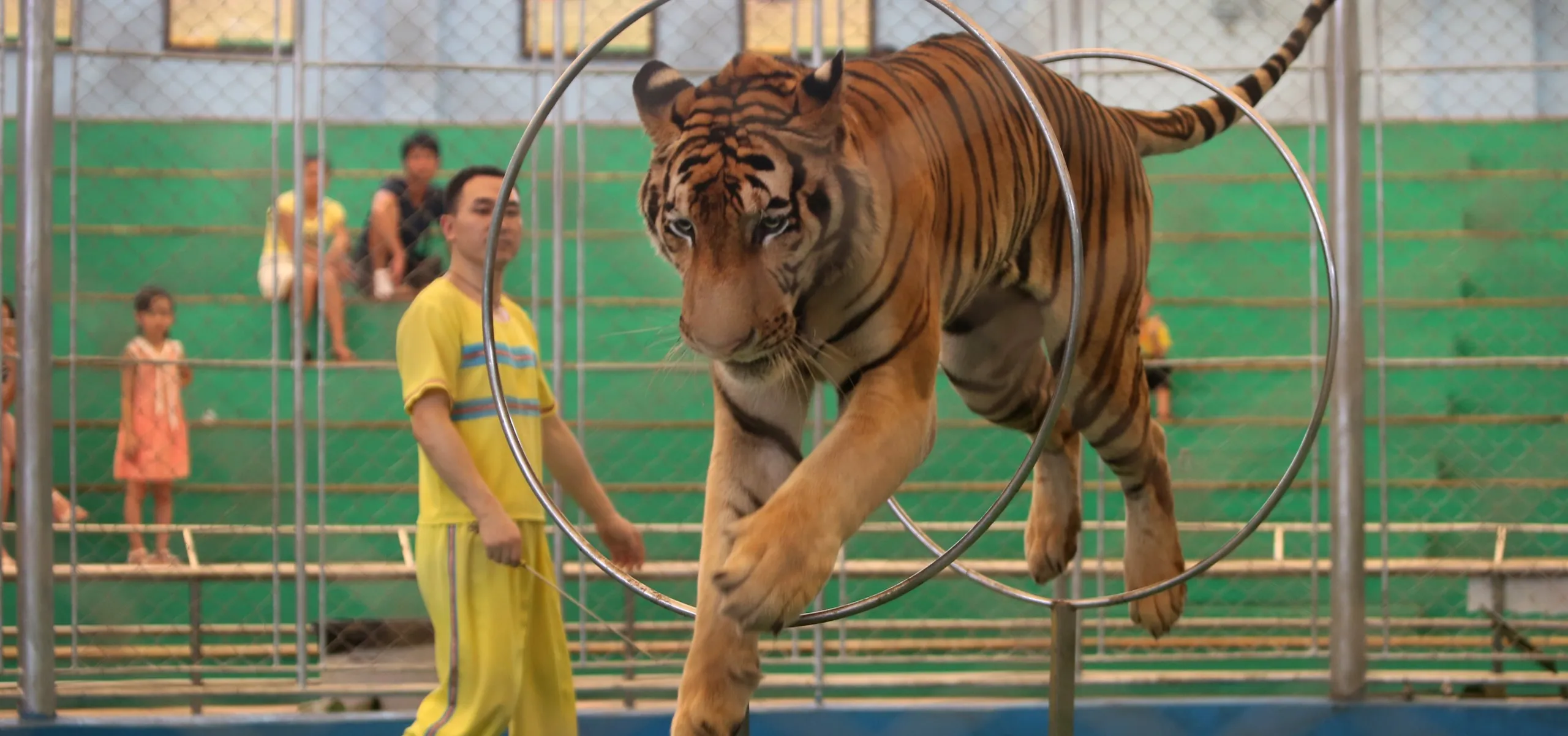One woman’s battle against illegal animal performances in China
-1-
The apartment circus
The year was 2020, and we were in a small town in Shangqiu, Henan.
The new apartment complex across from the city hall had just put up a large tent with red and blue stripes. It was the last day of the National Day holiday, and the tent was packed with over 100 children and adults. They were waiting to see a free circus show.
Inside the tent, a four-meter-tall chain-link fence separated the audience from a small performance space. Various props were arranged around the stage.
Accompanied by rousing music, a well-built trainer walked out with a black bear the height of his shoulders. He led the bear once around the fence, gesturing for everyone to see.
The trainer then led the bear in climbing gymnastic bars and jumping rope. The children on the sidelines oohed and aahed. The adults, by contrast, looked disengaged. It may be because this hidden circus had been running three times a day during the National Day holiday. It was now the seventh day. Who knows how many of the adults present were seeing the show for the umpteenth time?
Although animals headlined the show, there were more human acrobats performing. After several dazzling acts, it was time for the main event.
The cheers from the crowd could only mean one thing—an apex predator.
Two animal trainers came onstage with a slow-moving tiger.
Unlike the previous black bear performance, both trainers held white target sticks in their hands. They directed the tiger to climb up and down and perform simple movements for the audience. But this tiger seemed dull and lifeless.
And it wasn’t only the tiger: Next up was a lion, which slowly performed the actions indicated by the trainers. The scene created a stark contrast to the announcer’s dramatic commentary: Native to the savannas of Africa, the lion is powerfully built and lightning-fast, as swift as a leopard cat.
There was a minor incident at this juncture. The trainers wanted the lion to lie down and roll over, but it just lay there, unwilling to move.
The trainer tapped the target stick near the lion a few times, but received no response. So he took out a whip and cracked it on the ground a few times. Only then did the lion finally roll over.
The lion was the least cooperative of the animals that had appeared so far. After it got up, it was supposed to pose on the stool next to the trainer, but it began a slow patrol along the chain-link fence instead. No matter how the trainer guided it with the stick or stroked it with his hands, it wouldn’t come back.
The crowd fell silent. The primordial tension between man and beast seemed to reach through the wire, reminding everyone present of the animal attacks that keep appearing in the news.
Fortunately, nothing happened this time. The lion returned to performance mode, going through a few passable movements with its trainer before leaving the stage.
It was the seventh day of the show; perhaps the fatigue had gotten to them. The show, which had already been 40 minutes late in starting, now ended early as well. As the crowd dispersed, the show’s sponsor didn’t forget to advertise: After the conclusion of this amazing performance, please consult our sales staff if you are in the market for a home.
It’s likely that most of the audience didn’t hear or care about the advertisement. However, they were curious to know why a perfectly good performance would start late and end early. Why did the animal show seem to be missing some spark? What could have gone wrong?
They didn’t know the answer, but we did.
This circus show had been reported by a woman named Hu Chunmei. She runs a non-profit organization called Save the Performing Animals (拯救表演动物). She had been in the audience the whole time, recording every detail about these animals.














